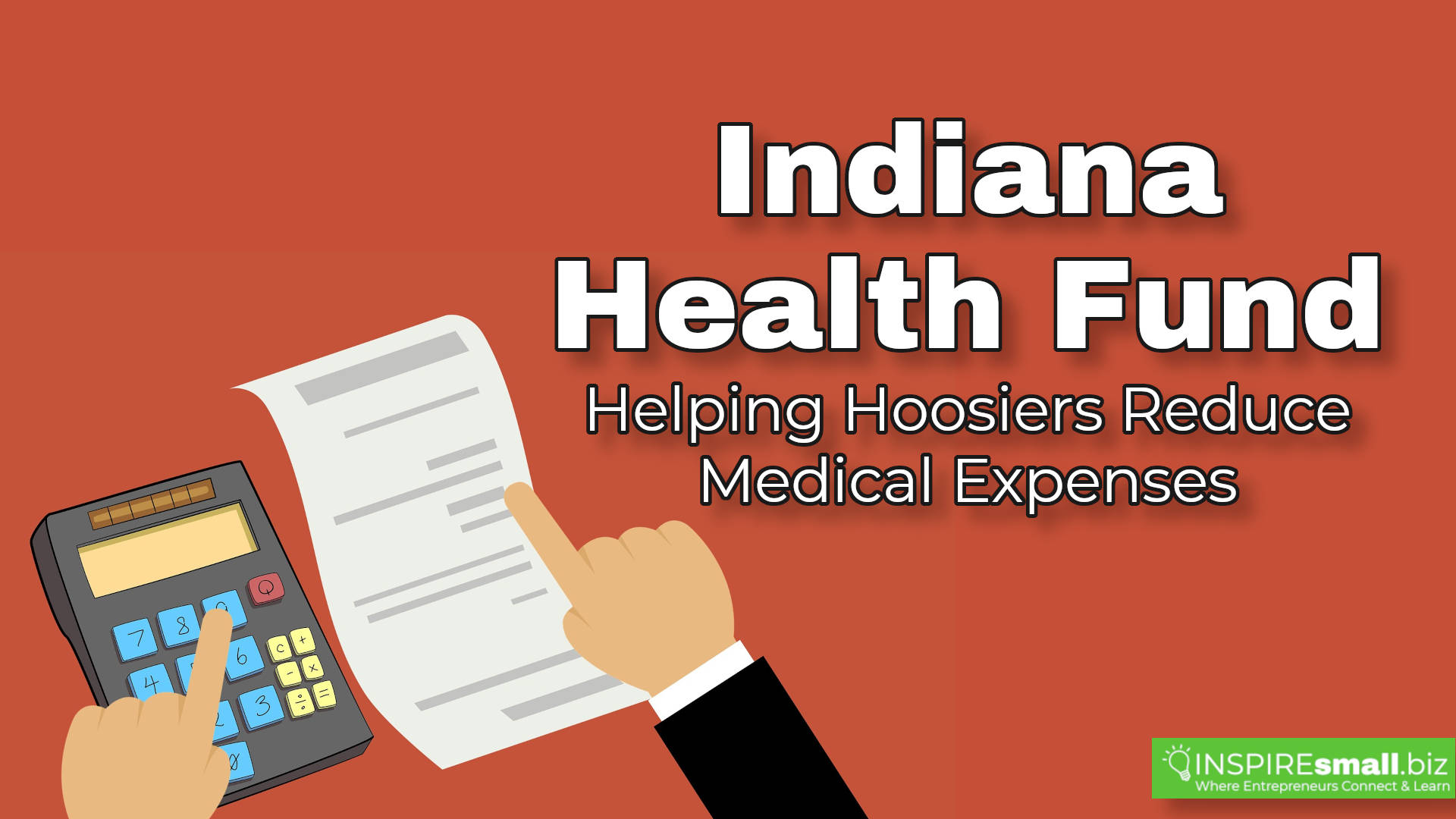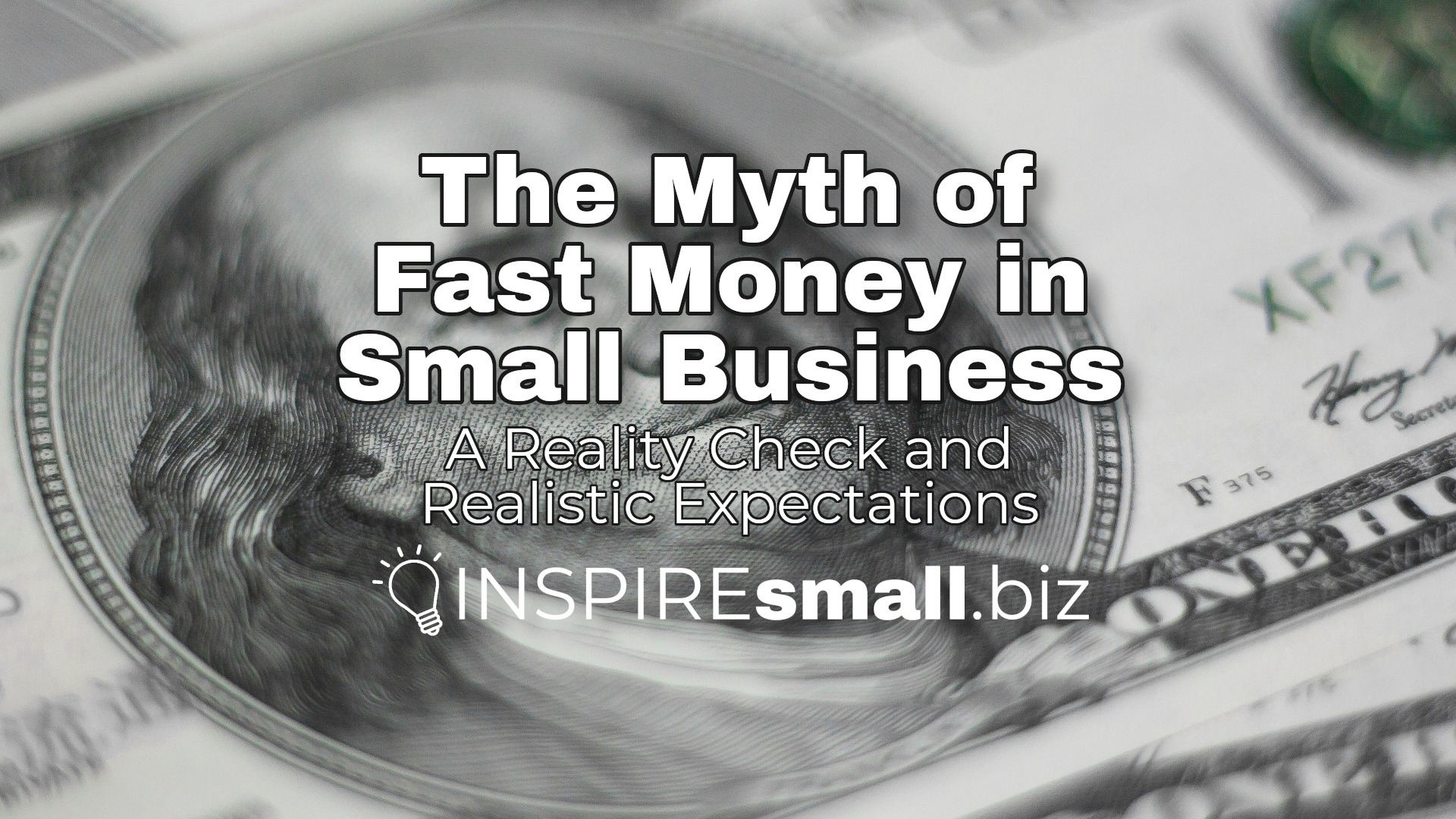Listen as Colleen Rusnak explains what the Indiana Health Fund is and how it can help Hoosiers deal with medical expenses.
Here is the transcript from the presentation:
Jamie: Let’s go ahead and introduce our speaker, as we all know already, we do have Colleen Rusnak from the Indiana Health Fund.
Jamie: Colleen is from here in Carmel, IN I believe.
Jamie: Did you go to Indiana. Was that right?
Colleen: Yeah, I guess, I did my undergrad at IU Bloomington and then my masters at IUPUI.
Jamie: There you go, that’s what, that’s why I thought I’m, I’m a fellow Hoosier, too. So, go Hoosiers, go IU and, and we’re just so excited. Colleen spent has spent her career working in this philanthropic area, and now she’s found this opportunity to be the executive director of the Indiana Health Fund and take this awesome idea to new levels. And we’re just so excited to hear about what you do and who you can help.
Jamie: So go ahead and take over.
Colleen: Thank you, thank you so much Jamie, I appreciate it.
Colleen: Thank you, Ryan, for letting me have the chance to introduce Indiana Health Fund. I’m gonna go ahead and share my screen and bring up a few slides. One second.
Colleen: I apologize, it’s taking it back to the beginning.
Colleen: So, thank you for that.
Colleen: Indiana Health Fund was founded by two physicians, Doctor Jeffrey and Doctor Lee Meltzer, and they’re both OB GYNs. And, through their years of experience, as they had over 25 years of practice as clinicians, they saw that there was a gap, where people that had high deductible plans had large medical expenses, really could not afford medical expenses, and it was putting them into financial hardship where they’re no longer able to pay their rent or their mortgage.
Colleen: They lapse on their medical bills to pay for groceries and basic needs, which then hospitals put those bills into collections and it really puts a financial hardship on people that fall into this gap, that are about two to four times above the federal poverty level. So, individuals and families in the Hoosier state, that don’t qualify for government assistance but still have trouble paying medical bills.
Colleen: So, our mission statement. We were founded up to help these individuals and families through philanthropic gifts, from foundations, corporates, corporations, and individual gifts as well as assisting Hoosiers financially with medical debt that qualify.
Colleen: We also have an education platform with experts in the field of everything related to medical debt. So, we have physicians. We have human resource experts that work with employee benefits. We have experts on, on government programs and financial assistance with hospitals that are available through video tutorials on our website, on our tips and Tools section of our website.
Colleen: So, we’ve really been growing to connect with the community to not only help those in need with financial and medical debt relief, but as well as educating the community on everything related to medical debt.
Colleen: How it works? This is how we started. We’ve been working with hospitals to identify those in need, and the first of round of debt that Indiana Health Fund helped eliminate. We worked with Community Health Network and the Community Health Network helped us to identify three families and 1 individual that were in financial need, that were two to four times above the federal poverty level; they didn’t qualify for Medicaid and they weren’t old enough to qualify for Medicare.
Colleen: They didn’t have additional assistance, but their medical bills were forcing them into almost having to file for medical bankruptcy. So, when they identified these, in these families and individuals, we went in and negotiated with Community Health Network. Indiana Health Fund worked with the hospital system to negotiate their bill down to 30 to 50, to almost 30% of the bill. So, that we could wipe out their debt.
Colleen: And then take care of, of their medical bills, so they would no longer have that medical debt. We typically like to work with patients and families that have medical debt that has not been sent into collections.
Colleen: So, the good news is legislation has changed. Hospitals typically could send a medical bill into collections after six months of not being paid. The legislation has now changed. Now hospitals cannot send the bill into collections until a year has passed on medical bills that have not been paid.
Colleen: Also, any medical bill that’s $500.00 or less will be wiped out by a hospital, so there is change in legislation that’s helping this group of people.
Colleen: These individuals and families that are really being in being in a pinch and being very hurt financially by medical bills.
Colleen: So, we work so that patients can come, come and apply to us directly or we work with the hospital systems to help eliminate medical debt.
Colleen: Again, I’m going to focus on Who benefits and how, the group of people that we help.
Colleen: We help individuals and families that are two to four times above the federal poverty level. They may have insurance through the ACA exchange or have insurance with a high deductible. That doesn’t mean that, it doesn’t mean families have to have this in order for us to help them, but these are some of the qualifications we look at. We also do look at if the debt they have debts outweigh in their assets. If they have debt that is 5% greater than their annual income.
Colleen: And that’s how we begin to evaluate how we can assess how we can help families moving forward.
Colleen: So, the COVID-19 pandemic has really exposed the gap in those that are in our health care system and how people are really being crippled by the fact with these medical bills that they can look can no longer afford basic needs. You know, it’s, it’s to the point where people are no longer being able to, you know, maybe you can’t afford groceries for that week because you have to pay your medical bills or you have, you know, you can’t pay your rent that month, so the time is really for now.
Colleen: This is how we, why we launched, a little back story. Indiana Health Fund was launched in March of 2020, right when the pandemic hit. So, Doctor Jeffrey Meltzer took a leave of absence from his position as a clinician to launch Indiana Health Fund. One of the first individuals that we helped, had an emergency surgery, had been to the ER a couple of times and was having a pain in his upper right quadrant and had gallstones, so we wanted to assist that individual as they had lost their job due to the pandemic.
Colleen: Still had health care coverage, but without the wages and employment could no longer afford his medical bills. So, these are just some additional ones.
Colleen: Good thing I guess about the pandemic has helped us identify the need and now we know how we could go in and help and really give more care to people and help them out of their medical debt.
Colleen: This is a list of our Board of Directors. We have people all over the state of Indiana, so it is Indiana Health Fund.
Colleen: We want to help people across the state. We do have a board member from Columbus and two board members from Terre Haute.
Colleen: We are trying to expand across the state through working with the Fire Chief across the state of Indiana, David Hobbs, who’s the Fire Chief for Carmel. And he has worked with us to assist to get the fire chiefs on board to help bring out the initiative.
Colleen: Indiana House Fund helps help us fundraise and connect with communities where we can go and eliminate debt.
Colleen: This is my contact information. You can, people can contact direct contact us directly through IndianaHealthFund.org.
Colleen: We have a question to enter form that’s available. If you have questions specifically about medical bills or medical debt you have, you’re looking for financial assistance. Please e-mail us.
Colleen: We also have a physician that will be joining us to help answer individual questions. Go ahead and follow us on Twitter on LinkedIn and then you can also search for us on Instagram and Facebook by just looking up Indiana Health Fund.
Colleen: So, that’s just an introduction and I know it’s a brief introduction about Indiana Health Fund. You also may want to visit our website at IndianaHealthFund.org, and again the tips and Tools section we’ve created has several video tutorials about everything related to medical debt where you can submit questions and get feedback on individual questions about medical debt.
Colleen: We also work with the medical billing advocate that, if you come to contact Indiana Health Fund, we can connect you with that advocate and they will help at a lower rate as well. They will offer a non-profit rate.
Colleen: Go ahead and stop this share.
Ryan: Colleen, I have a question for you. What is the primary source of revenue for you guys to carry out your mission?
Colleen: We mostly have been generating a lot of revenue through individual contributions. However, we’ve just submitted an application for two grants, um, one with the with [unintelligible] and one with Indiana health.
Colleen: We have started to begin conversations with IU Health about incorporating our education platform videos. Those video tutorials I mentioned in our tips and tools section, um, to be working with their financial assistance program at the hospital.
Colleen: I think a lot of times, um, not everyone is aware of all the different financial assistance that’s available within the hospital, and it can be hard to navigate, so we’re trying to help educate the community on that as well, but it’s largely individual contributions.
Jamie: Also, are y’all hosting any events or any fundraisers like that that we need to be aware of, or anything that’s public you’re selling tickets for?
Colleen: So, we’re very new and we have not started a large fund-raising event. Like I mentioned we launched during 2020 of the pandemic, and then I didn’t come on board until July of last year.
Colleen: So, through that I’ve been heavily focused on the fund-raising portion. Uhm, we just had an article put out in the Carmel Current and we’re, or, connected with a couple other news outlets to get the information out.
Colleen: Uhm, if we do a large-scale event it will not be until next year. But, if you follow us on our social media, we do sometimes hold smaller events, where we’re presenting our information trying to get spread awareness and get the word out as we did when a past one in March.
Colleen: And we’re trying to go to different locations across the state, so stay tuned on our social media. Follow us on, on LinkedIn, Facebook, Instagram, Twitter- Indiana Health Fund. Twitter @FundIndiana, and you could stay up to date on any kinds of events that we’ll be having moving forward.
Jamie: Absolutely. I’m so glad you mentioned that Current article, ’cause I saw it the other day. That was fantastic. My senior support team at Church was actually in the 55 and better magazine that went out that same time, so-
Colleen: Oh really, oh that’s wonderful.
Jamie: Yeah, so I was looking for that and I found your article and I was so excited, so-
Colleen: Yeah, we were really excited. Like you know, since we’re very new, we’re just trying to spread the word, so, we were really happy that people have been agreeing to highlight us and spread our mission and spread how they get in contact with us. And I will say that article helped us get additional funding, so we’re ready to go out and eliminate more debt.
Colleen: So, our first round we were able to help those three families of 1 individual. And now we’ll be able to help, uhm, many more with this new round of funding and with our grants that hopefully come through, we can help even more families so.
Jamie: That’s awesome alright, so I’ve got two questions. I, kind of go together.
Jamie: Obviously, we know funding is a big portion of what you need, but what other needs do you have? You seem to have a pretty strong board, but are you trying to expand to different areas of the state? Are you looking for more referral partners and whatever you need? I’m making stuff up. What, what are some other big needs you have besides funding?
Colleen: So, I think a large need is, I, I spoke about the videos that were creating and we’re getting people from all different areas like we have a Vice President of Human Resources. That’s thinking about, you know, how do you understand employee benefit? That’s, we have some physicians that are speaking about, you know, how do you prepare for medical procedures?
Colleen: Um, but people that are experts in, like you know, maybe how you fund it, how to keep your HSA funded, or how can you plan better for medical expenses? We’d love to have that, those individuals to interview on our platform. Anyone that’s a medical billing expert would be great to have on our platform.
Colleen: We just did another video about surprise billing with Doctor Howard Egan and Doctor Mercy Hilton, so they were talking about the new legislation that that’s trying to prevent surprise medical bills.
Colleen: So, you go in for your procedure, or you think it costs, you know, you’ve got your insurance coming through. It’s going to cost $5000.
Colleen: A month later, you get a bill that’s due in two weeks for $10,000. And it’s like, why did that happen? What’s going on here?
Colleen: So, uhm, anyone that really has an interest in that area and has expertise. We’d love to have volunteers to come on, come on and share their expertise with us and their professional, expert background is wonderful.
Jamie: Excellent, I would tell you I went in for a couple procedures last month and this is the first time ever that they made it very clear that I was going to receive three separate bills, and I don’t know what’s happened for them to make that distinction, but they made it very clear I was getting one bill from the doctor, one from the facility, and one from the anesthesiologist. And that has never happened before.
Colleen: That’s great. You know there’s been a lot of pressure, and I don’t know if you saw the article in the Star about a month ago. There’s been a lot of pressure on the hospital systems, um, not only to, you know, look at pricing, but to also be very clear on the billing side with patients. IU Health has committed to freeze their prices and all the other hospital systems, Community, Ascension, are looking.
Colleen: You know the legislation is looking to them to take action on, you know, no surprise, billing, overcharging of patients, trying to be more clear and with the new legislation that actually has prevented medical bills from going to collections. You now have a year.
Colleen: The hospitals are supposed to work with patients to identify the financial assistance programs they have available. So, not only could they not send it to collections until a year now, they also have to make those patients aware if they’re not paying their bills, that there are that there is financial assistance available.
Colleen: So, that might be a little bit of as to why you’re getting a clearer picture on your bills now, which is good.
Jamie: That would be nice. We’ve got, we finally got the first two bills on Tuesday. Now six weeks later, so.
Colleen: Right, yeah?
Jamie: And they were still a surprise.
Colleen: Right?
Jamie: Even though I knew they were coming. So, who would be like good connection partners for you? I mean, maybe the people that would help you spread the word or get you connected with more of your target market to help. What type of organizations are you looking to team with?
Colleen: And we, I, I spoke with several social services organizations. So, anyone that’s helping people, you know, maybe helping people with basic needs. Maybe they, you know, have lost housing over there. There’s, they’ve recently lost employment.
Colleen: Uhm, you know those people that are maybe just above the poverty level or they’re, you know, we want to make sure that they’re not going into poverty, right?
Colleen: So, social or social service organizations that really help those populations, uhm, that are, you know, kind of on the edge of making ends, meet making their bills meet, with those basic needs.
Colleen: We have recently looked at targeting to help pregnant and nursing mothers, since both Meltzers are OB GYN’s uhm, we’ve looked at single mothers, private nursing mothers, that again fall into that gap.
Colleen: You know, maybe they might have a job where they’re making you know $30,000 or something a year with health insurance, but then they have a baby in the way, they have a child at home there. Maybe they’re a single mother, maybe their spouse lost their job or their partner lost their job and they’re really in need, you know, and they have a pregnancy coming their way to a delivery or they’ve just had their delivery and we want to help with those costs.
Jamie: Absolutely, that that makes perfect sense. Are you connected with Cicoa?
Colleen: You know I there is a meeting. It wasn’t Cicoa. Um, there was another meeting, a Marion County Group I was going to go to next week, but, uh.
Jamie: Yes please, please do ’cause I actually was going to.
Colleen: OK.
Jamie: I was going to send you an invitation to that after we’re done that, that would be a perfect place for you to go.
Colleen: Oh yeah.
Jamie: I will be there, oh great.
Colleen: OK, yeah, that’ll be wonderful. I, I think it’s next week on the 12th.
Jamie: Uh, next Thursday, next Thursday.
Colleen: But, yeah, yeah, next Thursday.
Jamie: At 9:30
Colleen: Yeah, yes OK great. I will be there.
Colleen: I was, uh, another woman I spoke with at the Alzheimer’s Association. She’s the one that mentioned that Jennifer Buddenbaum.
Colleen: Yeah, so that’ll be great. I think that’ll be wonderful us to talk to that organization to get our mission in and out.
Jamie: Yeah, absolutely. And then when we’re done I’ll connect you with Lisa and Lauren at the Shepherd Center, Hamilton County.
Colleen: Oh yeah, that would be great. That would be wonderful, and that’s a, really, uh, a population we’re trying to help. You, you know, as, as the aging population, they have a lot of different bills that come in and plus their caretakers might have bills because they might have to cut down their work hours, take care of it, you know, their family members and things like that.
Colleen: So, we really want to make sure, we’re, that, that population is aware of who we are.
Jamie: That makes perfect sense. Yeah, I think those two places would be really good for you and, you know, you know, I’m a connector, so I’ll keep working on it and see so.
Colleen: Yeah, I appreciate it. You’re very much a connector Jamie.
Colleen: It’s wonderful. This has been excellent, yeah?
Jamie: Well, I appreciate that very much, Ryan. Do you have any more questions for Colleen?
Ryan: Oh, I think she’s answered everything.
Jamie: Awesome, me too, so thank you so much for being here today.



